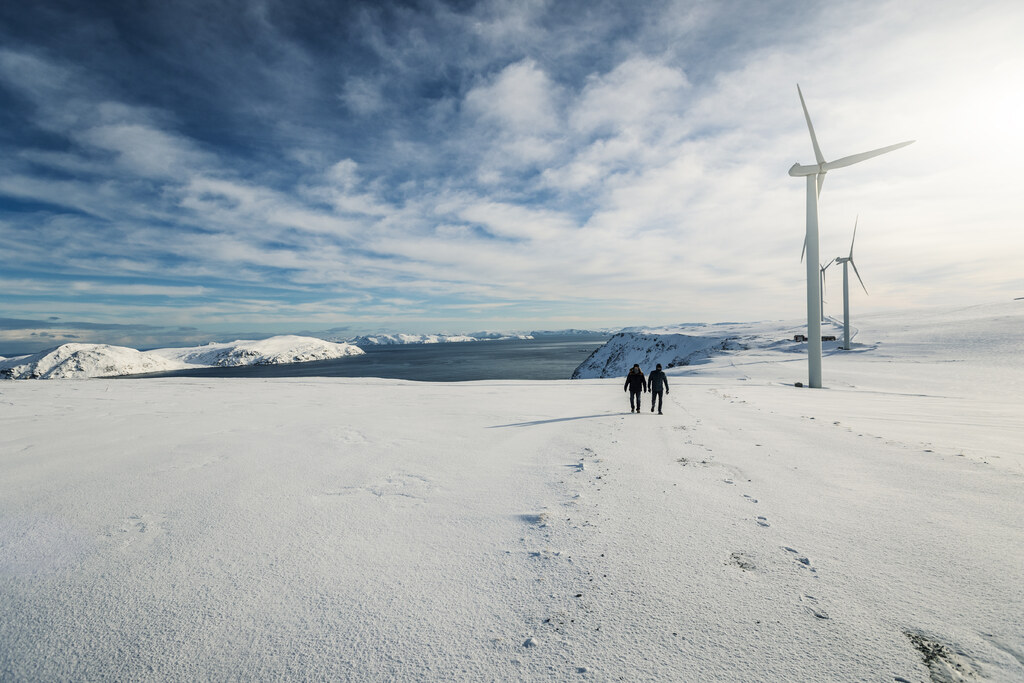
Nordic Energy Challenge 2022 – deadlines, participation, jury and selection
Energy in the Arctic is the theme of this year's Nordic Energy Challenge. The Arctic area has exceptional challenges and opportunities in connection with the green transition. How should these…
Energy in the Arctic is the theme of this year’s Nordic Energy Challenge. The Arctic area has exceptional challenges and opportunities in connection with the green transition. How should these challenges and opportunities be met?
Nordic Energy Research asks, what energy challenges or solutions in the Arctic will, together with the rest of the Nordic region, pave the way for becoming the most sustainable and integrated region in the world? How can further Nordic energy co-operation facilitate the combination of high environmental ambitions and economic growth? And in what ways can these ambitions obtain a broad and strong commitment from the public, business, industry, and civil society?
In the search for solutions in support of the green transition, we need contributions from a variety of stakeholders. Nordic Energy Research therefore invites all relevant actors to take part in this year’s Nordic Energy Challenge, including companies from the energy sector or other sectors, researchers/academics, non-profit organizations, business and sectorial associations, think-tanks, students, and individuals. Part of the Nordic Energy Challenge is to provide a platform for these stakeholders to develop new energy related ideas by co-operation.

Arctic energy conditions
Since much of the Nordic region, both on land and at sea, falls within the Arctic Circle, the Nordics are strongly involved in issues that concern this unique and harsh, but also vulnerable area.
The Arctic region consists mostly of islands or remote areas with limited electricity interconnection between national grids or to mainland grids. Such isolated micro-grids depend largely on local energy supply, as well as on import of expensive fossil fuels to cover stationary energy demand as well as transport.
On the one hand, the Arctic has large renewable energy resources that enable the region to become self-sufficient with zero-emission energy or even an exporter of green transport fuels/energy carriers. On the other hand, the smaller or isolated an energy system is, the more challenging it is to integrate variable renewable energy generation in the energy supply.
By participating in the Nordic Energy Challenge 2022 – the Arctic Energy Challenge – you will identify the advantageous and limiting energy conditions in the Arctic region and address them by means of Nordic cooperation. Finding common Nordic solutions to the Arctic energy issues entails large benefits and creates added value to the region.
Nordic Energy Research will utilize the contributions to the Nordic Energy Challenge to continue the Nordic region’s efforts of being a socially sustainable, competitive, and climate neutral, and in support of the Nordic vision of becoming the most sustainable and integrated region in the world.
Submit an abstract of you innovative proposal by May 22nd, at the latest – and accept the challenge of solving energy related perplexities in the Arctic and Nordic region.
Send your submissions, as well as any questions, to:
tender@nordicenergy.org
Project Timeline
How to participate
The Nordic Energy Challenge is divided into three stages.
Stage 1: Submit an abstract by May 22nd, at the latest. The abstract should consist of up to 5,000 characters and include a short description of:
- The challenges and opportunities you are addressing.
- What assumptions form the basis of your proposal.
- Your methodology.
- Expected outcome of your analysis.
All submissions will be examined by the project team at Nordic Energy Research, who on May 31st will announce the submissions that have qualified to participate in the next stage.
Stage 2: Due on August 11th, the selected submissions shall be finalized and submitted. The final submission should consist of a 5-minute video with a 1–2 pages complementary text or 6–10 pages text.
On August 22nd, a selected jury will announce the top three submissions, qualified for the final round.
Stage 3: The selected participants will be awarded at the conference The Future of Maritime Fuels on the 5–6th of October in Nuuk, Greenland, or in a comparable online-event.
Jury and selection
- Proposals which have qualified to the second stage will be evaluated by a jury.
- The jury consists of highly qualified representatives from Nordic energy community and from Nordic Energy Research.
- The jury assesses the submitted proposals on their level of comprehensiveness, innovation and promotion of Nordic added value.
- Proposals that are fully founded on already existing projects will be rated lower in terms of innovation by the jury.
What is Nordic added value?
Nordic Energy Research aims to facilitate cooperative energy research and policy development, and funds research of joint Nordic interest that supports the ambition to reduce carbon emissions in the Nordic region.
There are large benefits in finding common Nordic solutions to the Arctic energy challenges.
Common ground. Each of the Nordic countries is small. Together the Nordic region is the 11th largest economy in the world. Together we have the power and critical mass to lead the green transition.
Transnational added value. Maritime transport, which will be one of the large users of green fuels, often takes place between countries and regions. To make this work, we need to cooperate.
Larger markets. Business, citizens, and regions can gain value by a larger market and thereby competitive prices.
A Nordic value chain. By entering a Nordic value chain for generation, transport, storage, and use of green fuels, added value and synergies are created.
Knowledge sharing. Common research, knowledge generation, and exchange of experiences benefit from reaching a critical mass. This can accelerate the development, which otherwise would be slow nationally due to small numbers of local developers in each region.
What is innovation?
Nordic Energy Research wishes to promote the creation, development and implementation of new ideas aimed at improving the efficiency, effectiveness and/or competitive advantages in the Nordic region. Participants in Nordic Energy Challenge should present a submission that, if implemented, will lead to a positive effective change. The submission could also be resulting in a capturing of value in a new way.
What is comprehensiveness?
Nordic Energy Research is looking for submissions that display a high level of relevance and completeness throughout the proposal. The participant’s submission should be coherent and thoroughly worked through, thus demonstrating an overall comprehensiveness in their work.
Awards
- The best contributions will be awarded with an honorarium of 50,000 NOK, the second best with 20,000 NOK, and the third best with 10,000 NOK.
- Selected authors are encouraged to publish a summary of their proposal on the Nordic Energy Research website.
- Authors will be interviewed on videos, which are to be published on Nordic Energy Research website/and social media channels.

